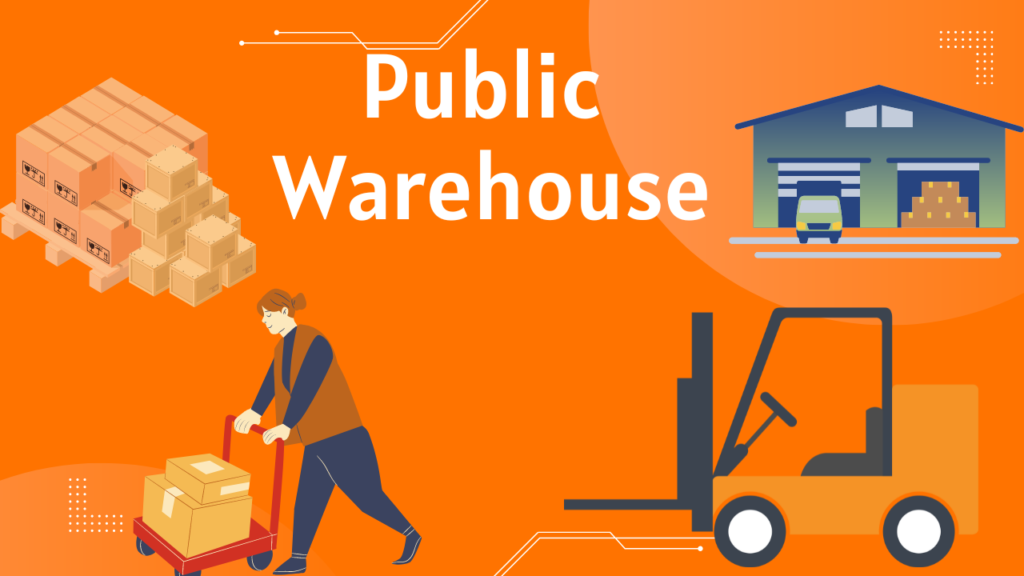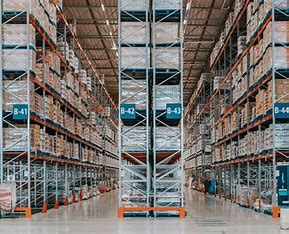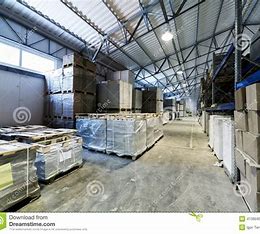When companies require additional storage space for their goods, they have several options to choose from – one of which is public warehousing. Public warehousing refers to the practice of using a third-party warehouse to store goods. This can be a viable solution for businesses looking for short-term or long-term storage solutions.
However, before deciding to use public warehousing, businesses need to understand what it is, the benefits it can provide, and the various types of public warehousing available in the market.

Public Warehouse Explained

Public warehouse is a storage facility that provides businesses with space and services to store goods. Public warehouses can be multi-client or single-client facilities and can offer value-added services such as shipping and distribution, packaging, and logistics consulting. Public warehouses are an efficient and cost-effective way for businesses to manage their inventory and expand their operations without investing in additional infrastructure.
What are the benefits of public warehousing?
One of the most significant benefits of public warehousing is that it is a flexible and cost-effective storage solution. Public warehouses provide businesses with the advantage of renting storage space only when they need it, allowing them to avoid the high overhead costs associated with owning and maintaining their warehouses. This can be especially beneficial for small and medium-sized businesses that may not have the financial resources to build and maintain their own warehouses.
Public warehouses also offer businesses the opportunity to take advantage of economies of scale. Since public warehouses are typically large facilities that serve multiple clients, they can offer lower storage rates than private warehouses. This can be especially beneficial for businesses that need to store large quantities of goods for extended periods of time.
In addition to providing storage space, public warehouses can also provide administrative support, staffing, transportation, and other services. This can be particularly useful for businesses that do not have the resources or expertise to manage these functions in-house. Public warehouse operators are usually specialists in this field and can help businesses optimize their logistics and supply chain operations while reducing costs.
Another advantage of public warehousing is that it can provide businesses with greater flexibility in their supply chain operations. Since public warehouses are typically located in strategic locations, businesses can easily access their inventory and quickly respond to changes in demand. This can be especially important for businesses that operate in fast-paced industries where demand can fluctuate rapidly.
Overall, public warehousing can be an excellent option for businesses that need flexible and cost-effective storage solutions. With the ability to rent space only when needed, take advantage of economies of scale, and access a range of support services, businesses can optimize their logistics and supply chain operations while reducing costs and improving efficiency.
The role of a public warehouse in today’s marketplace

Public warehouses have become increasingly important in today’s business environment. In fact, they are now a vital component of the supply chain for many companies. These facilities offer a range of services and benefits that help businesses manage their inventory and streamline their operations.
One of the main advantages of using a public warehouse is that it provides businesses with a cost-effective way to manage their inventory. Rather than investing in expensive storage space and equipment, companies can outsource this function to a public warehouse. This allows them to free up capital that can be used for other purposes, such as marketing or product development.
Another benefit of using a public warehouse is that it enables businesses to expand their operations without incurring additional infrastructure costs. For example, if a company wants to enter a new market or launch a new product line, it may need additional storage space and equipment. Rather than investing in these resources, the company can simply use a public warehouse to store and manage its inventory.
In addition to providing storage space, many public warehouses offer value-added services such as pick and pack and distribution management. These services can help businesses streamline their operations and reduce waste. For example, by outsourcing their pick and pack function to a public warehouse, companies can reduce the time and labor required to fulfill orders. Similarly, by using a public warehouse for distribution management, businesses can ensure that their products are delivered to customers quickly and efficiently.
Furthermore, public warehouses can also provide businesses with greater flexibility and scalability. For example, if a company experiences a sudden increase in demand, it can quickly and easily expand its storage capacity by utilizing a public warehouse. This allows the company to meet customer demand without having to invest in additional infrastructure.
In conclusion, public warehouses play a crucial role in today’s business environment. They offer a range of benefits and services that can help businesses manage their inventory, streamline their operations, and ultimately improve their bottom line. As such, they are an essential component of the supply chain for many companies.
Multi-Client Warehousing

Multi-client warehousing is a prevalent type of public warehousing that has gained popularity in recent years. This type of warehousing allows multiple businesses to utilize a single warehouse space for their storage needs. The concept of multi-client warehousing is simple: businesses share warehouse space, and the warehouse operator provides the necessary infrastructure and services to manage their goods.
One of the primary advantages of multi-client warehousing is that it enables businesses to reduce their operational costs. For smaller businesses, renting a dedicated warehouse can be expensive, and it may not be a cost-effective solution. By sharing warehouse space with other businesses, companies can significantly reduce their overheads while still getting the storage space they need. Furthermore, the cost of renting a shared warehouse space is usually lower than that of a dedicated warehouse.
Another significant advantage of multi-client warehousing is that it helps to spread the risk if any volatile or unstable business is sharing the space. In such cases, the risk is shared among multiple businesses, reducing the impact of any potential losses. This makes multi-client warehousing an attractive option for businesses that are just starting or are not yet established in the market.
Multi-client warehouses also offer businesses access to value-added services that can help them improve their operations and become more competitive in the marketplace. These services include consolidation of shipments from multiple suppliers, cross-docking, and distribution management. By utilizing these services, businesses can streamline their supply chain operations, reduce transit times, and improve their overall efficiency.
Moreover, multi-client warehouses are usually equipped with advanced technology and infrastructure. This includes warehouse management systems, inventory tracking systems, and other tools that help businesses manage their goods more efficiently. With these technologies, businesses can track their inventory in real-time, optimize their storage space, and make data-driven decisions.
In conclusion, multi-client warehousing is an excellent option for businesses that require storage space but do not want to invest in a dedicated warehouse. By sharing warehouse space with other businesses, companies can significantly reduce their operational costs while still getting the storage space they need. Additionally, multi-client warehouses offer value-added services that can help businesses improve their operations and become more competitive in the marketplace.
Benefits of Public Warehousing for Businesses

There are many benefits of public warehousing for businesses. For starters, it allows businesses to focus on their core operations without worrying about the logistics of shipping, receiving or storing their goods. Also, public warehouses provide businesses with the flexibility to adjust their storage needs as demand fluctuates. This can be especially valuable for seasonal businesses, allowing them to scale their operations up or down to match the changing demand. Additionally, using public warehouses enables businesses to save time and money that would otherwise be spent on managing their warehouses, hiring staff, and acquiring equipment.
Types of Goods Commonly Stored in Public Warehouses

Public warehouses can accommodate a wide array of goods, including raw materials, finished goods, perishable items, and consumer goods. These goods can be stored either in bulk or in specific locations, depending on the nature of the goods. For instance, food and beverage products may require refrigerated storage units, while pharmaceutical products may require a climate-controlled environment to ensure product quality. Public warehouses are also suitable for storing hazardous materials as they can provide the necessary safety measures and certifications to manage such items.
How to Choose the Right Public Warehouse for Your Needs
Choosing the right public warehouse can be a daunting task. However, there are several factors that a business should consider when selecting a public warehouse. The first factor is location. The warehouse should be close to the business’s customers and suppliers to avoid transportation delays and additional costs. The second factor is the type of goods to be stored. The warehouse should have the necessary certifications and documentation to handle the types of goods a business intends to store. Finally, the warehouse’s cost, services, and overall reputation should be considered when deciding which public warehouse to use.
Understanding the Cost of Public Warehousing
The cost of public warehousing varies depending on several factors, such as the location, the size of the warehouse, the type of goods being stored, and the value-added services provided. The cost of public warehousing can either be a fixed fee or determined by the volume of goods stored, the duration of storage, or the value-added services needed. Businesses should consider all these factors when deciding whether to use public warehousing and which warehouse operator to use.
Strategies for Optimizing Public Warehousing Practices
Optimizing public warehousing practices is critical to ensure businesses get the most value out of using a public warehouse. One strategy businesses can use is to implement new technology to improve inventory management, such as barcoding and RFID tracking. Another strategy is to use data analytics to identify areas of waste and inefficiency in the warehouse and streamline processes. Additionally, businesses can work with their warehouse operators to develop customized solutions for improved efficiency. These strategies can help businesses reduce costs, improve customer satisfaction, and gain a competitive advantage in the market.
Conclusion
Public warehousing is a cost-effective and efficient solution for businesses looking for additional storage space and logistics services. By using public warehouses, companies can save costs, improve operational efficiency, and focus on their core business operations. Understanding the various types of public warehouses and their benefits can help businesses make an informed decision when choosing a public warehouse operator to work with. With the right public warehouse, businesses can optimize their logistics and supply chain operations and gain a competitive advantage in today’s marketplace.
